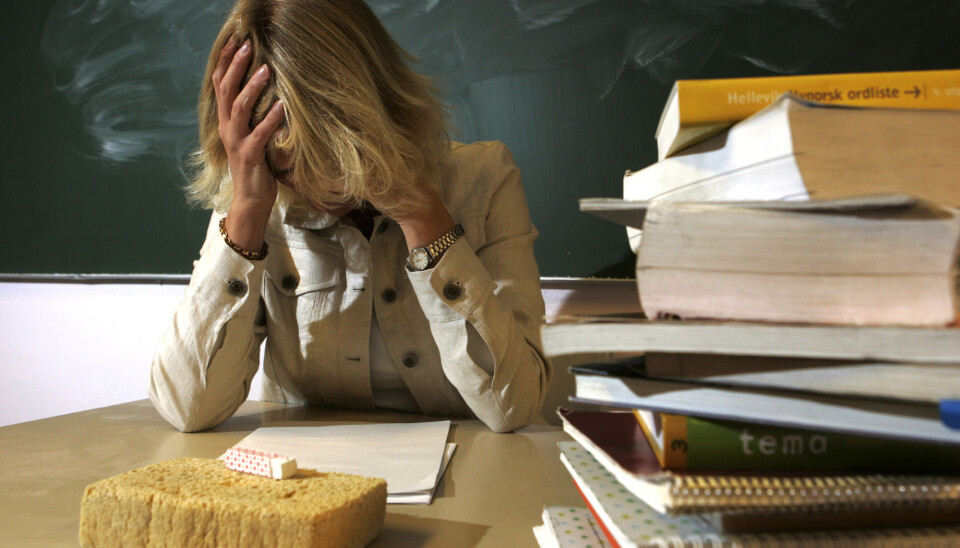
Men are stricter than women when it comes to sick leave
More men than women find it unacceptable to stay home when work is stressful or they’ve just had a breakup, a new study shows. Other studies suggest the opposite.
Should you be allowed to take a sick day if you’re feeling tired or extremely stressed at work?
A new analysis of a Norwegian survey from 2015 shows that men and women differ on the answer to this question.
Men, for example, were less likely than women to think that it was acceptable to take sick leave if you’re feeling really tired or have just undergone a major relationship breakup.
In general, however, nearly 60 per cent of survey participants said there was no reason to take sick leave because a person felt tired or exhausted.

The participants in the study were also less open to taking sick leave in connection with stressful conditions at work than if there were problems in the family.
The new analysis showed that men in general seemed to be more likely than women to see no reason for sick leave. This applies both to shorter absences and longer absences for which the sick leave has to be approved by a doctor.
Men are less concerned with rules
The researchers collected their data from Norsk Monitor, which is conducted every two years. The response rate to this survey is typically very low. For some studies, it is as low as five per cent, but the researchers say there is no reason to believe that people who chose to answer the survey are significantly different from the rest of the population.
The Norsk Monitor survey also did not include information about how respondents themselves actually handled their own sick leave, but just asked their for their opinions on the matter.
Between 1995 and 2015, about three out of ten people of both sexes said it could be acceptable in some circumstances to stay home from work even if a person was healthy enough to go to work. Only 2.5 per cent responded this was okay no matter the circumstances.
Slightly more women than men said they thought it was okay to stay home from work even if a person is healthy. The gender difference has remained stable over the years.
Nevertheless, the gender difference tends to be small, on average only five per cent.
The Norsk Monitor data show, however, that men tend to be laxer about breaking other rules. For example, men were more accepting of cheating on taxes or driving after having a drink.
Women have higher rates of sick leave
A person’s work situation seems to affect attitudes towards sick leave.
For example, people who have management positions or work long weeks are less accepting of people taking sick leave when they are healthy. Men are more likely to hold management positions than women, which may explain why they look less positively on lax sick leave attitudes.
The researchers behind the study emphasize that there are likely many reasons why women generally take more sick leave than men, but they think it is likely that attitudes towards sick leave are a factor.
Other studies report conflicting results
“We know very little about attitudes toward sick leave and whether they have any significance on sick leave rates,” says Arne Mastekaasa, professor of sociology at the University of Oslo, who was not involved in the study.
He said he was surprised that the Norsk Monitor study detected the gender differences it did, because the little research that has been done previously suggests the opposite, or that women are stricter than men in taking sick leave.
“But the differences in this study are very small, so this does not explain the gender differences in sick leave,” he says.
Mastekaasa points out that sick leave is 70 per cent higher among women than men in Norway, but no one has managed to figure out why.
------------------------
Read the Norwegian version of this article at forskning.no































